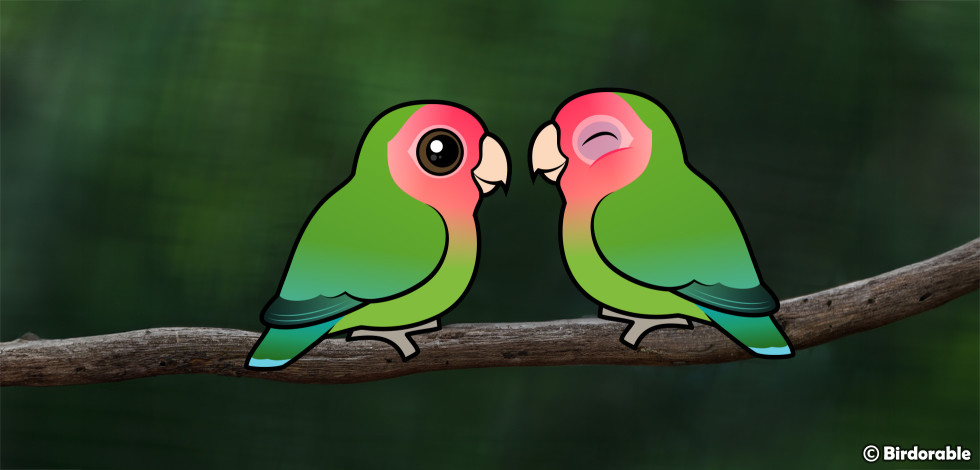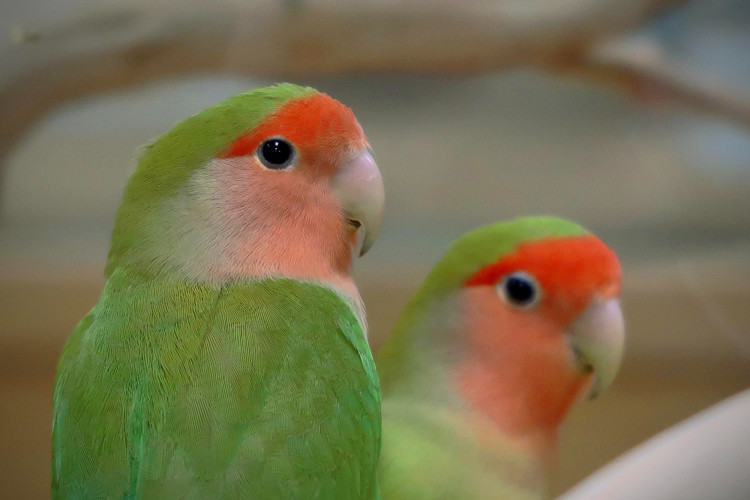Introducing the Birdorable Peach-faced Lovebird

Peach-faced Lovebirds, also known as Rosy-faced Lovebirds, are delightful little birds native to the arid landscapes of southwestern Africa. These birds are not only notable for their vibrant coloration but also for their lively and sociable nature. As gregarious creatures, Peach-faced Lovebirds thrive in the company of their kind, often found chirping loudly and congregating in small, animated groups in the wild.
Their day-to-day activities are a joy to observe. These lovebirds have a busy schedule that includes feeding throughout the day and indulging in frequent baths. When it comes to their appearance, there's a fascinating variation in coloration among different populations. Typically, females exhibit a darker and greener hue, while males tend to be smaller with brighter plumage.
One of the most endearing behaviors of Peach-faced Lovebirds is their unique sleep position. These birds love to sit side-by-side, turning their faces toward each other in a cozy and heartwarming display of affection. This behavior not only reinforces their bonds but also epitomizes why they're named 'lovebirds.'
Adding to their charm, female Peach-faced Lovebirds showcase remarkable nest-building skills. They are known to skillfully tear raw materials into long strips and ingeniously 'twisty-tie' them onto their backs. These resourceful females then fly back to their nesting site with these materials to construct a comfortable and secure nest for their eggs.
The Peach-faced Lovebird, with its vivid appearance, social habits, and adorable behaviors, truly embodies the essence of cuteness and is a wonderful example of nature's beauty and ingenuity. Whether observed in the wild or as cherished pets, these birds bring joy and color to the lives of those who encounter them.

This design, a cute version of the Peach-faced Lovebird, makes a great gift for birders, Lovebird fans, and anyone who loves cute birds! Also check out the other Birdorable parrots and parakeets, like the Rose-ringed Parakeet, Monk Parakeet and African Grey Parrot.













Comments
Be the first to comment
Thank you!